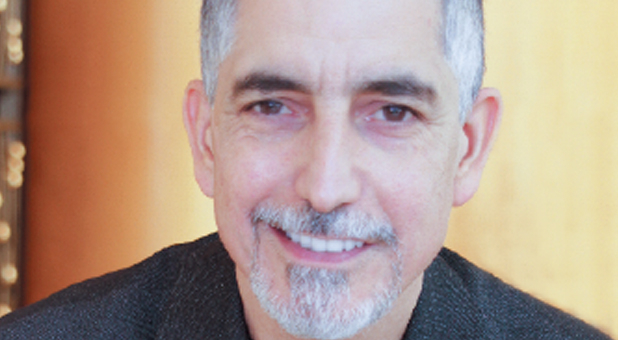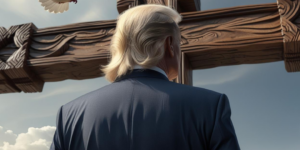Is the Local Church Becoming Obsolete?
I have never accepted the assumption that I, as a bishop, should function merely in the priestly realm and concentrate primarily on spiritual things, while Christians I work with in business or politics function as the kings in the kingdom who are responsible for governing and practical application of kingdom concepts in the natural realm. I have always functioned in both roles, and feel just as comfortable with both pastors and marketplace leaders. Furthermore, as a leader in my city, I have always been involved in community, business and political processes and decisions that help frame public policy. I personally believe that my priestly roles of intercession, prayer and meditating on the Word of God empower me to act as a king by influencing my community and city in matters related to both the church and society.
Furthermore, the original apostles, who were given the command to disciple nations (Matt. 28:19) actually were commanded to leave their marketplace vocations and serve full-time in the religious sphere. In Acts 6:2 and 4, Peter said they weren’t even allowed to wait on tables so they could give themselves fully to the ministry of the word of God and prayer. It was out of this powerful context of being in the presence of God, studying and preaching the word, and planting local churches in key cities that the first century apostles were able to “turn the world upside down” (Acts 17:5-7). Thus, reformation of society will not come outside of the local church or from a separation of kings and priests in the kingdom, or to the neglect of the local church authority in the kingdom, but out of the local church context.
We see this further unpacked in Ephesians 4:10-12. The primary call of church apostles and five-fold ministers is to prepare God’s people for the work of the ministry which, as described in Ephesians 4:10, has as its goal to fill up all things. Thus, the center of power—equipping and releasing for cultural leadership—should emanate out of the local church context that houses the five-fold ministers.
First Corinthians 12 teaches that true local churches are first started by those gifted as apostles, then prophets. This has more to do with establishing cultural beachheads for kingdom purposes than just exercising spiritual gifts in a church building.
When we attempt to reform society outside of the context of the local church (which Paul calls “the pillar and ground of the truth” in 1 Tim. 3), we are attempting to have a missiology without a clear ecclesiology. This results in having unaccountable marketplace leaders who are not groomed and discipled in regard to their character development, family lives and personal emotional health—and possibly are in a place of power merely because of their giftings. (Although to be fair, the same can be said of pastors and church ministers who are not in accountable relationships with their peers and overseers.)
God is called our Father. The church is supposed to function as a family of families so that we can restructure, reform, and serve humanity, and build a healthy civilization that stands upon strong marriages and families. God told Abraham that in him all the “families” of the earth would be blessed (see Gen. 12:1-3). This is how biblical dominion and transformation will take place.
Separating the ecclesia from the local church will not accomplish this task because mobile churches in the context of a business or political system do not engender strong family structures, nor are they equipped or called to!
In the local church, older men and women are to be treated as fathers and mothers. Younger men and women are to be treated as our brothers and sisters, or sons and daughters (see 1 Tim. 5:1-2). This produces the greatest learning environment in which to teach discipleship, because the kingdom of God is based on relationships. This is also potentially the greatest equipping center to bring healing to individuals and enact policy change for cities and nations.
Separating business and marketplace leaders from the local church has historically been a disaster. It is also one of the primary reasons we have lost the culture in the United States. Mark Noll (read his great book, The Scandal of the Evangelical Mind) and others have done a great job documenting the fact that Ivy League universities abandoned the Christian worldview when pastors and clergy were replaced as the college presidents by business and community leaders during the 18th and 19th centuries.
Recently, I spoke to one major Southern Baptist leader and asked why so many Christian colleges eventually lose their Christian identity and become bastions for liberalism. He told me the colleges that stay connected to a local church or keep their school under the auspices of the church usually stay biblically focused but those schools that separate from the local church historically become liberal, lose their Christian voice, and compromise biblical values within a few decades. Consequently, if Harvard, Yale, Princeton and the other Ivy League schools stayed under the guidance of local church leadership, they would still be churning out future presidents of nations and Fortune 500 CEOs for the kingdom and glory of God!
When it gets down to it, perhaps the real challenge we have is our lack of apostolic local churches led by apostolic leaders with a leadership lid capable of leading high-impact marketplace leaders called apostolically to culture. The answer isn’t to jettison the church—which would be against the biblical pattern laid out in the New Testament—but to reform the church so that apostolic strategies and leadership become the norm, not the exception.
If you are a marketplace leader who is frustrated because your local church doesn’t have apostolic vision, then ask the Lord what to do. Perhaps He will lead you to another church that is more regional and kingdom in its scope. But whatever you do, don’t use your situation to change your theology in an attempt to justify your independence from the local church.
Joseph Mattera has been in full-time ministry since 1980 and is currently the presiding bishop of Christ Covenant Coalition and Overseeing Bishop of Resurrection in New York, a multiethnic congregation of 40 nationalities that has successfully developed numerous leaders and holistic ministry in the New York region and beyond. Click here to visit his website.




























































